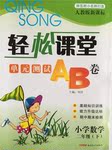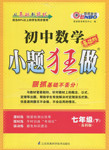题目内容
My elder brother Steve, in the absence of my father who died when I was six, gave me important lessons in values(价值观念) that helped me grow into an adult.
Steve taught me to face the results of my behavior. Once when I returned in tears from a Saturday baseball game, it was Steve who asked me what happened. When I explained that my baseball had soared through Mrs. Holt’s basement window, breaking the glass with a crash, Steve encouraged me to admit to her. Although my knees knocked as I explained to Mrs. Holt, I offered to pay for the window from my pocket money if she would return my ball.
I also learned from Steve that personal property(财产) is a sacred(神圣的) thing. After I found a shiny silver pen in my fifth-grade classroom, I wanted to keep it, but Steve explained that it might be important to someone else in spite of the fact that it had little value. He reminded me of how much I’d hate to lose to someone else the small dog my father made with a piece of cheap wood. I returned the pen to my teacher, Mrs. David, and still remembered the smell of her perfume (香水) as she patted me on the shoulder.
Yet of all the instructions Steve gave me, his respect for life is the most unforgetful in my mind. When I was twelve I killed an old brown sparrow(麻雀)in the yard with a BB gun. Excited, I screamed at Steve to come and take a look. I shall never forget the way he stood for a long moment and stared at the bird on the ground. Then in a dead, quiet voice, he asked, “Did it hurt you first, Mark?” I didn’t know what to answer. He continued with his eyes firm, “The only time you should even think of hurting a living thing is when it hurts you first, and then you think a long, long time.” I really felt terrible then, but that moment stands out as the most important lesson my brother taught me.
【小题1】What is the passage mainly about?
| A.The relationship between Mark and Steve. |
| B.The important lessons Mark learned in school. |
| C.Steve’s important role in Mark’s growth stage. |
| D.Mark and Steve’s respect for living things. |
| A.was surprised | B.felt frightened |
| C.was light-hearted | D.cried before her |
| A.had a shiny silver pen | B.respected his teacher |
| C.hated his father very much | D.once owned a small wooden dog |
| A.Respecting life. | B.Being responsible for one’s behavior. |
| C.Being honest. | D.Respecting others’ property |
【小题1】C
【小题2】B
【小题3】D
【小题4】A
解析试题分析:
【小题1】这是主旨大意题。根据My elder brother Steve, in the absence of my father who died when I was six, gave me important lessons in values(价值观念) that helped me grow into an adult.可以看出应选C
【小题2】这是细节理解题。根据Although my knees knocked as I explained to Mrs. Holt,由于害怕我把膝盖碰了一下,故选B。
【小题3】这是细节理解题。根据He reminded me of how much I’d hate to lose to someone else the small dog my father made with a piece of cheap wood.可以看出应选D。
【小题4】这是细节理解题。根据短文的最后一自然段Yet of all the instructions Steve gave me, his respect for life is the most unforgetful in my mind.可以看出应选A。
考点:这是一篇记叙文。
点评:文中叙述了作者在父亲去世后,在哥哥的培养教育下,长大了。文中叙述了作者在成长中印象最深的几件事,同时通过这几件事哥哥教育作者如何做人。做主旨大意题时注意文章的首句或尾句,便可知道答案,因为它们往往就是文章的主题句。

 轻松课堂单元测试AB卷系列答案
轻松课堂单元测试AB卷系列答案 小题狂做系列答案
小题狂做系列答案